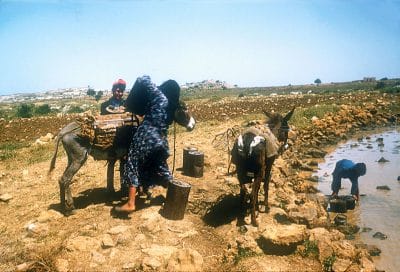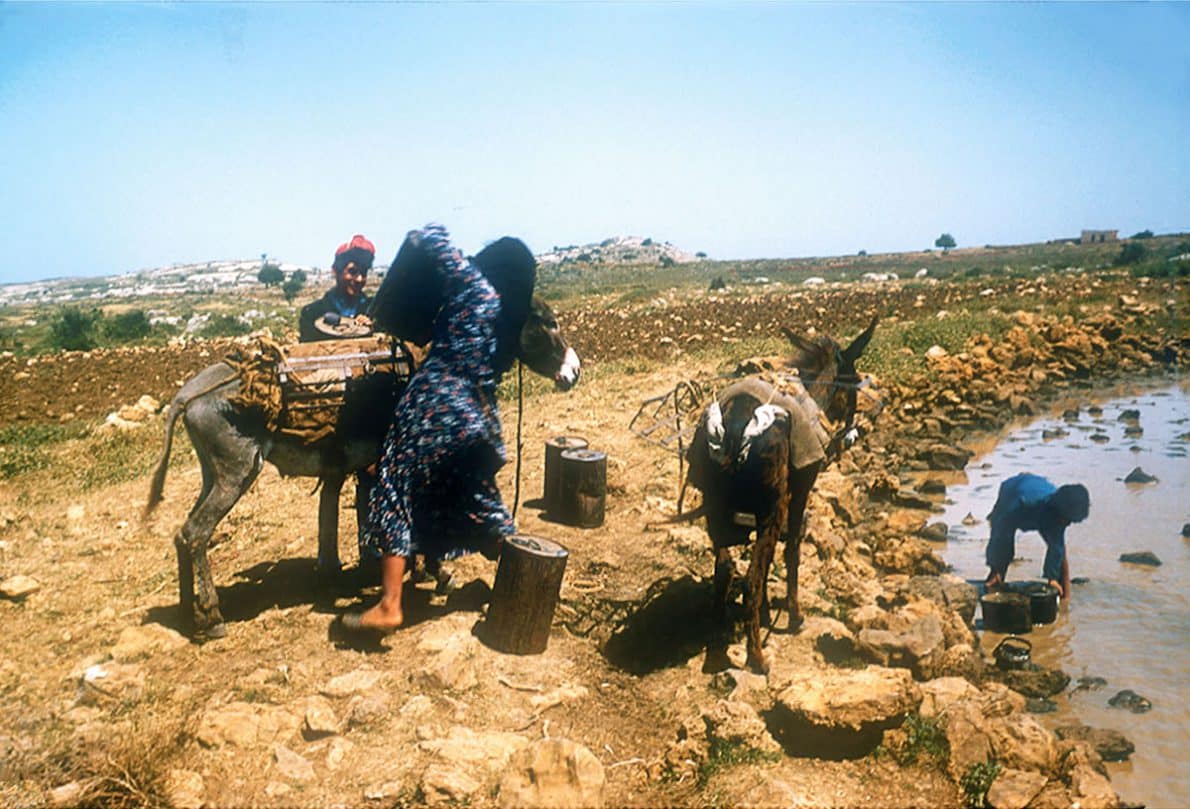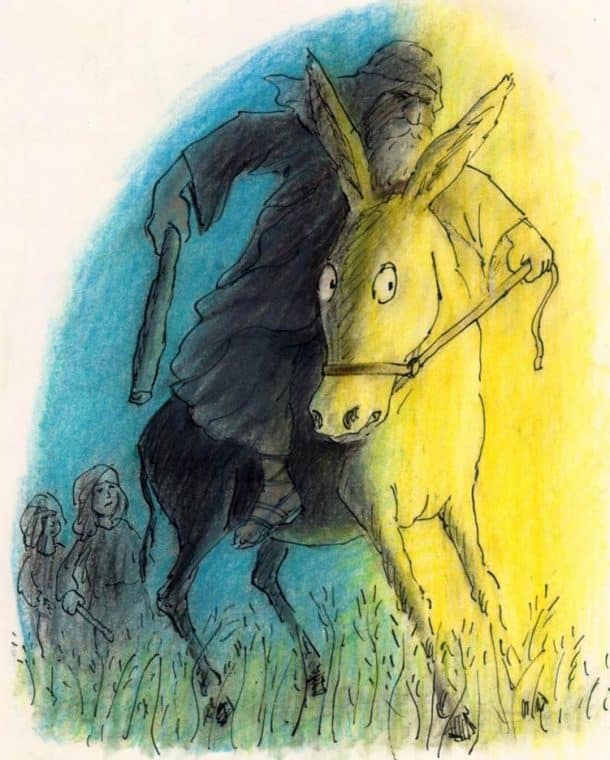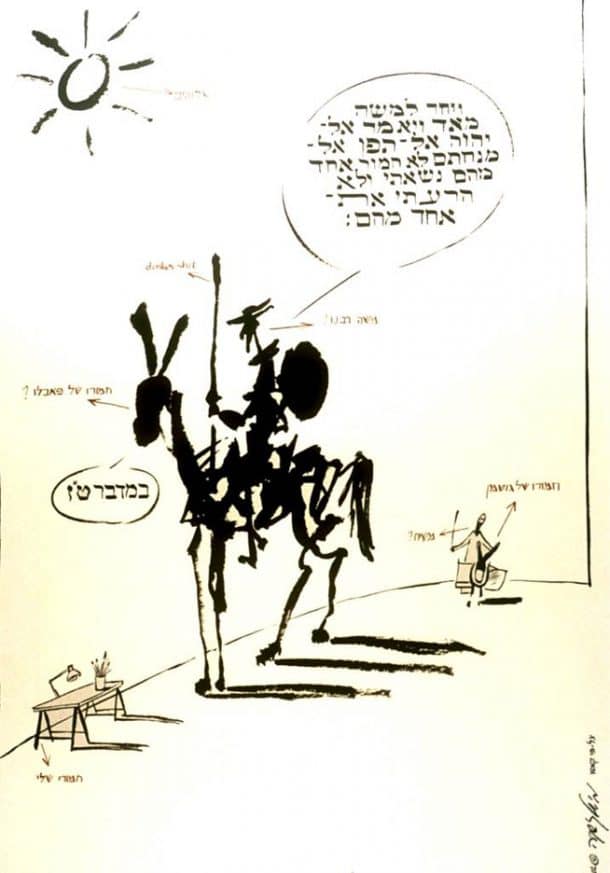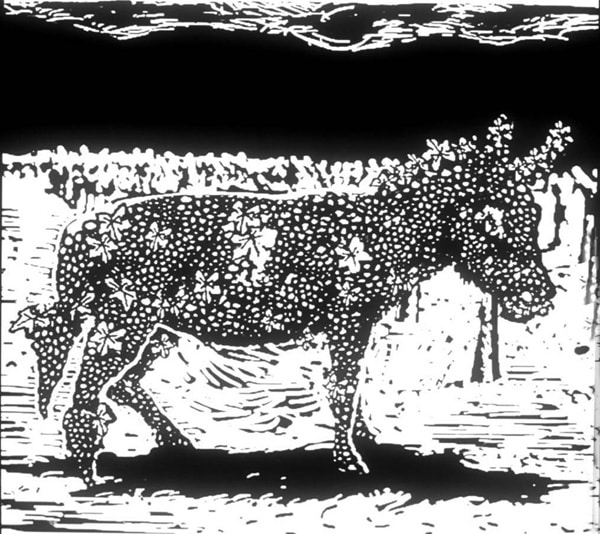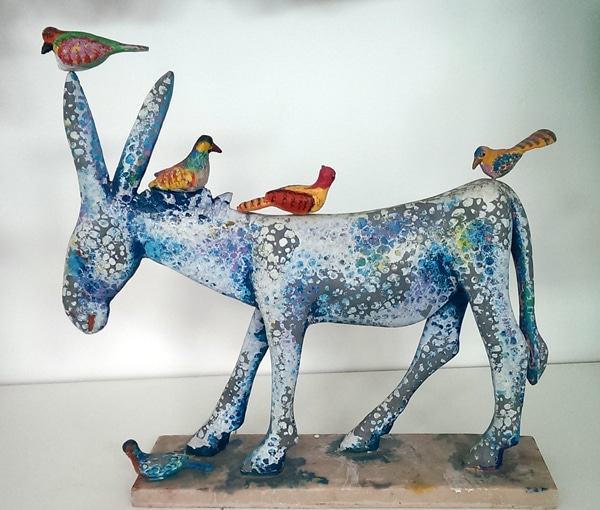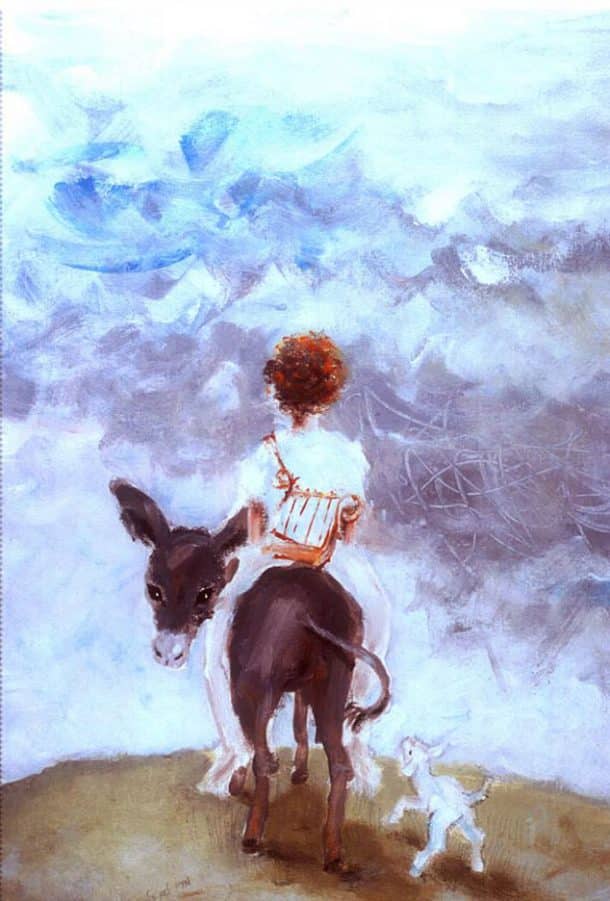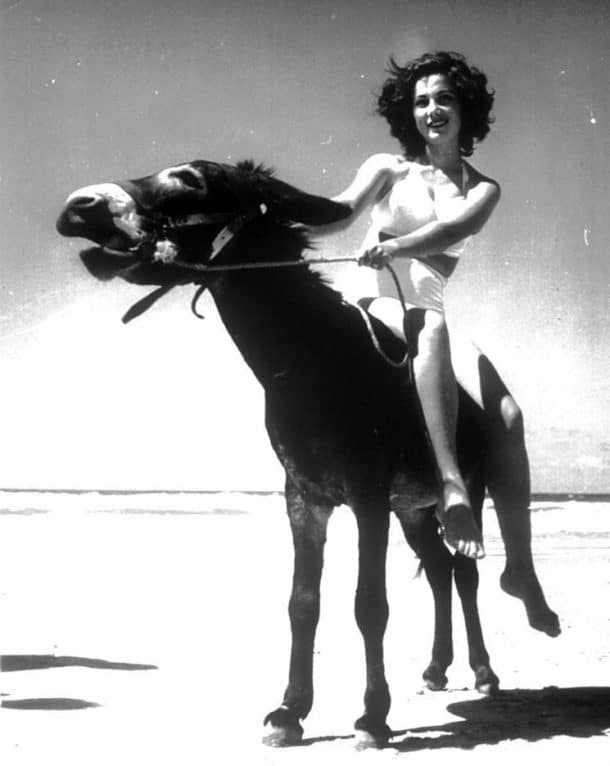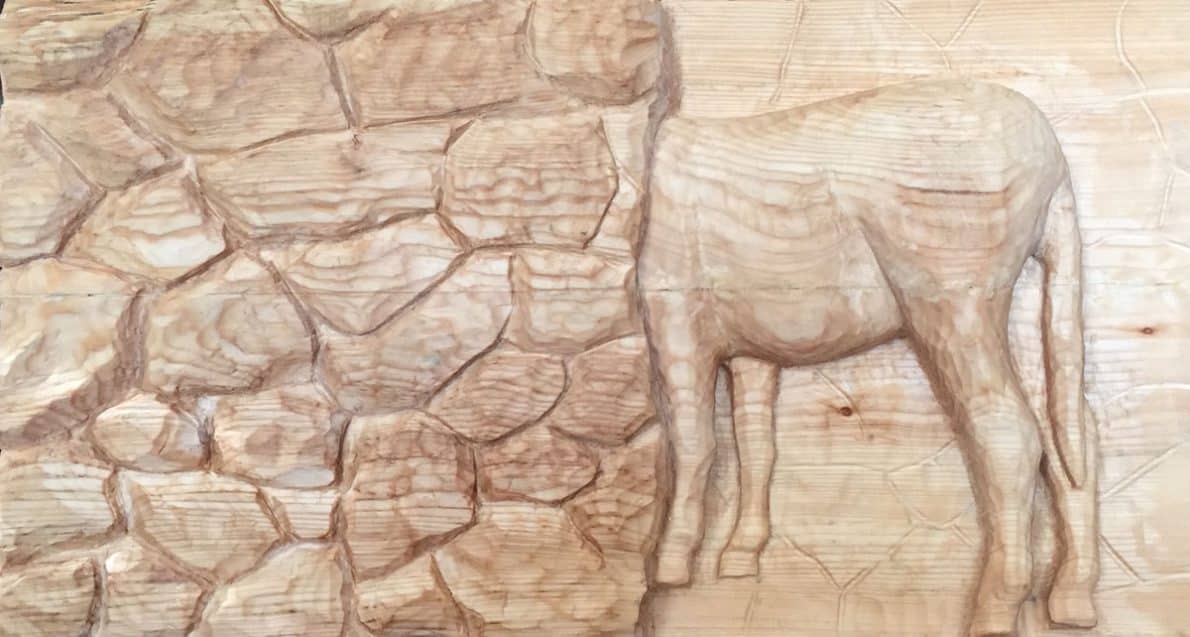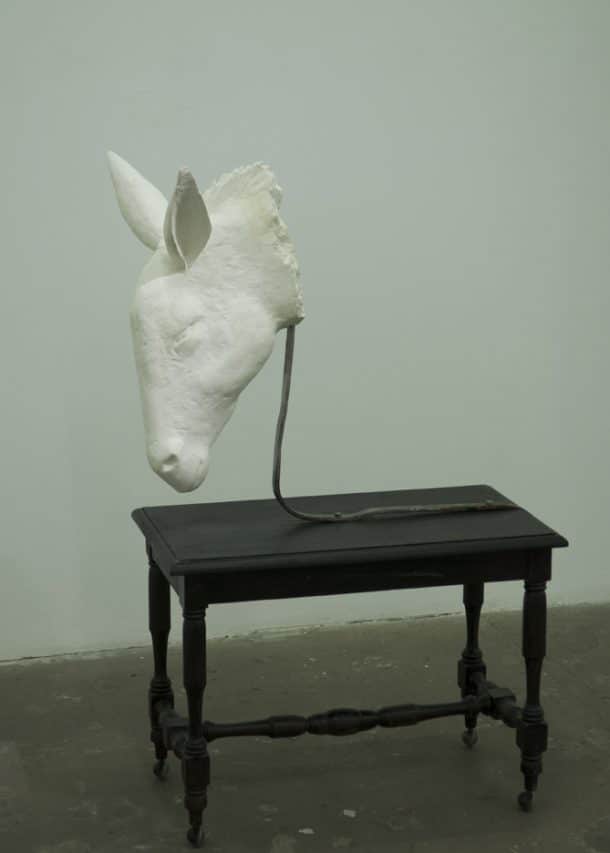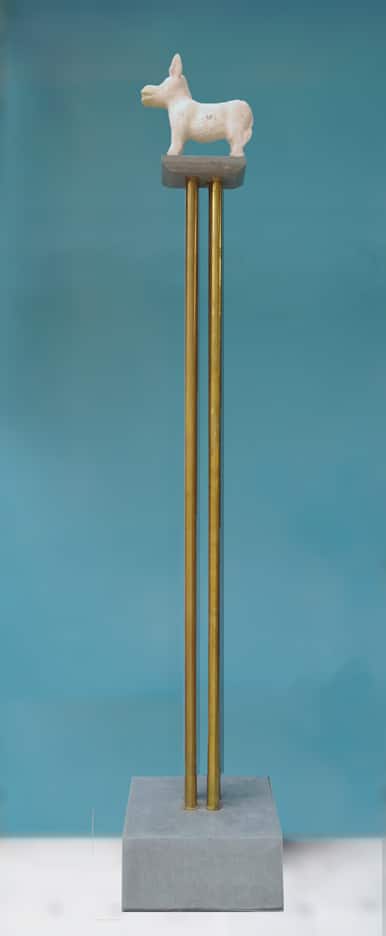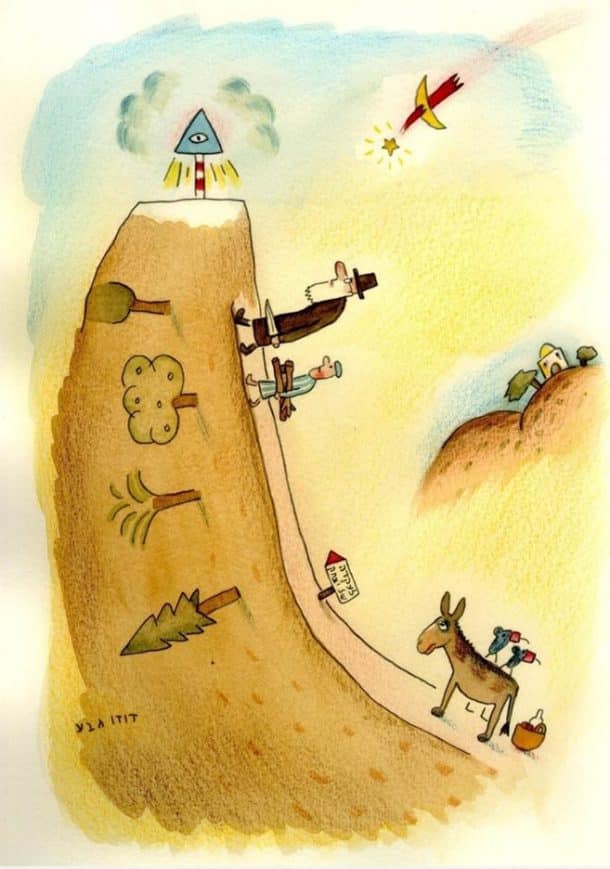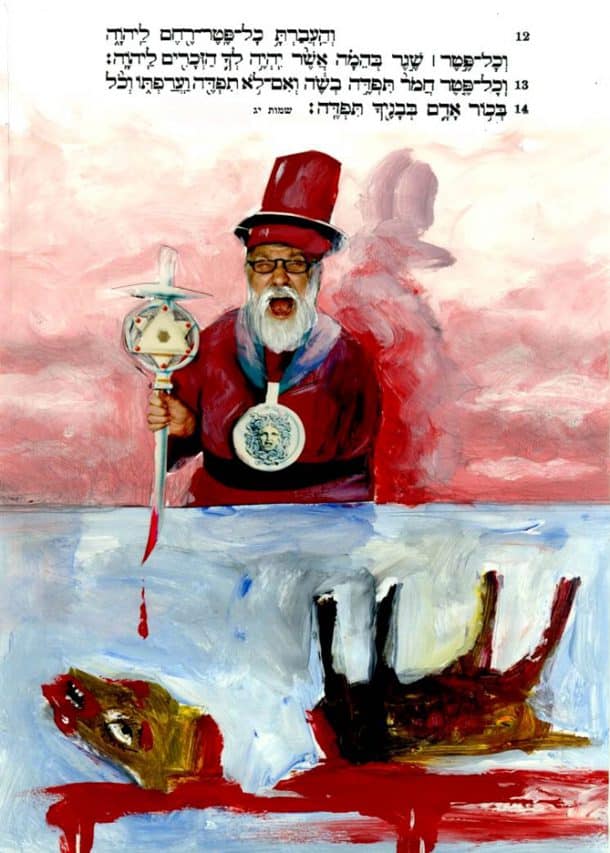The donkey lived here long before we did, and will be here long after we're gone. His chronicles as a local symbol have known ups and downs, just like us – who have suffered cultural shocks in the man-time-place relationship,and will continue doing so.
Cited 131 times in the Bible, more than any other animal – the donkey has lived hereand played a full and important role in nation-building, participating in major events in our history faithfully and humbly, because that’s what donkeys do. Thanks to their permanent presence in everyday life, donkeys have been documented in thousands of photographs as well as paintings by Israeli artists. Once the donkeys concluded their major role in paving the network of new roads that covered Israel, they left public life and retreated to the desert dunes to serve those who still need them. As usual, we didn’t treat donkeys the way that the man-animal relationship requires us to do. When we wanted to, we raised their value (= prices) and at other times, we humiliated them totally. Sometimes we awarded them terrifying primordial importance.
Seven sculptors: three generations have gone by during which donkeys were under-represented in local art. And suddenly they’re back… starring in the visual arts once again. The sculptures exhibited on the ground floor have been chosen to represent the world and language of contemporary Israeli sculpture. Each one has itsunique proportions and specific materials, and reflects its creator’s ideas. Each sculpture has its own truth, and each donkey is part of a one-of-a-kind herd. In the presentations accompanying the sculptures we’ve brought together dozens of donkey paintings by Israeli artists and by the greatest artists of Western culture.
A dialogue with the Bible and a documentary: the second floor displays sketches by 14 designers and illustrators who chose a Biblical verse which fired their imagination and translated it into a sketched statement. Each one is totally different from the other, even when the sketches were drawn on the basis of the same verse or story. Screened alongside is the documentary film Donkey Time, directed by Jachin Hirsch, which captures in scenes and conversations what specifically characterises the donkey, out of all his fellow animals.
166 photographs: The central gallery on the second floor shows works by dozens of photographers, divided
into ten themes, with each one capturing a period of our lives here. Archive photography shows a past that has vanished, and photographs of the present capture moments that will never return – and in all of them the donkey is a hero of the unfolding event. One cannot stage donkeys. The photographer moves closer to the donkey with a camera. But then the donkey smells something which isn’t a carrot, and returns to his own preoccupations. Though he will never become a top model, he offers an excellent index for our lives here – Bedouin, Jews, and Arabs, alike.
Talking about donkeys: the silent donkey is a never-ending source of proverbs and fables, used to criticize all humanity and every human failing. A display of proverbs is shown in the inner room: they can be read, listened to in the original language, Arabic, and in their translation into sign language in Hebrew. In the same room is the figure of the donkey as an eternal symbol in our lives, through cartoons printed in the Israeli press. Though newspaper cartoons have a very short lifetime, they never really die and every so often refresh the memory of events. Observing this collection arouses questions about the difference between humour and insult.
Guest Curator: Siona Shimshi
Nirit Dahan
Varda Ghivoly and Ilan Gelber, Menashe Kadishman, Rivka Margolin, David Gerstein, Moshe Katz, Boaz Arad, Ofer Kotler, Yossi Abulafia, Rachel-Eliya Achunov, Judith Eyal, Dudu Geva, Roni Darin, Yael Bar-Dayan, Avner Katz, Nachum Cohen, Izhar Chohen, Michal Levit, Miri Leshem Pelly, Michael Kichka, Dani Kerman, Davia Sharir, Jachin Hirsh, Hedwig Grossman Lehmann, Rudi Lehmann, Josef Constant, Avi Negi, Aviva Uri, Yassu Busanna, Ahuva Tsapai, Ankave Odeje, Alkeanesh Adajo, Aviva Yassu, Hila Spitzer, Eden Mitsenmacher, Yehuda Bacon, Louis Salouni, Moshe Agmon, Luli (Yael) Evron
Be'er Sheva municipality
Kivunim
Ministry of Culture and Sport

